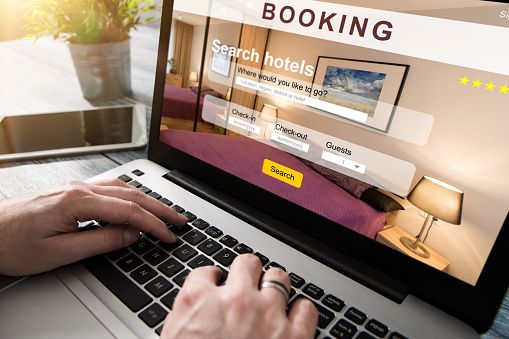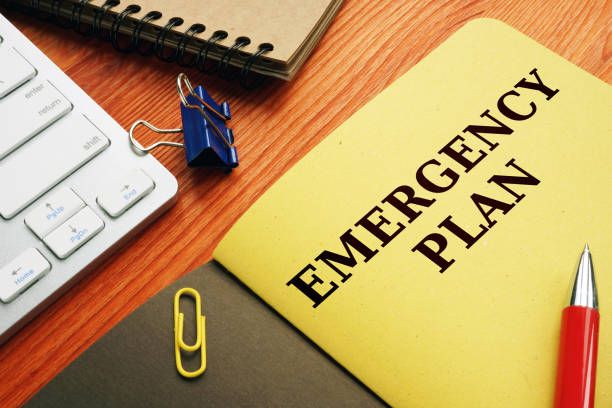How to Plan a Stress Free Vacation

A vacation is a period of leave from one's usual work or studies, taken for the purpose of leisure, travel, or personal refreshment. It is a time for relaxation, adventure, and making memories with loved ones.
A stress-free vacation can be one where you prioritize rest and relaxation, engage in activities that bring you joy, and minimize responsibilities and obligations. Some suggestions for a stress-free vacation include:
1. Budget planning and cost management
2. Research and selection of destination
3. Booking accommodations and transportation
4. Creating an itinerary with flexibility
5. Packaging essentials and preparation for travel
6. Coping with travel-related stress and anxiety
7. Communication and organization
8. Managing expectations and setting realistic goals
9. Finding balance and taking time for self-care
10. Planning for unexpected events and emergencies.
1. Budget planning and cost management

Budget planning and cost management are important aspects of ensuring a stress-free vacation. Some tips for budgeting and managing costs during a vacation include:
1. Establishing a budget for transportation, lodging, food, and entertainment before the trip
2. Researching affordable options for activities and accommodations
3. Taking advantage of discounts and deals
4. Bringing your own snacks, water bottle, and other essentials
5. Avoiding impulsive or unnecessary purchases
6. Keeping track of your spending throughout the trip
By having a clear budget and carefully managing costs, you can reduce financial stress during your vacation and ensure that you have enough resources to fully enjoy your trip.
2. Research and selection of destination

Researching and selecting a destination is the first step in planning a trip. Here are some tips for making the process easier and more effective:
1. Determine your travel style and preferences, including budget, desired activities, and preferred pace.
2. Research different destinations and consider factors such as climate, culture, and accessibility.
3. Look for recommendations from travel guides, friends, or travel websites.
4. Consider the time of year and check for peak travel seasons or holidays that may impact your trip.
5. Review local laws, customs, and safety information for your destination.
6. Plan for any necessary vaccinations or visas for your destination.
7. Check for travel warnings or restrictions related to the COVID-19 pandemic.
By following these steps, you can ensure that you select a destination that matches your travel style and provides a safe, enjoyable, and memorable experience.
3. Booking accommodations and transportation

Booking accommodations and transportation are important aspects of travel planning. Here are some tips for booking both:
1. Research and compare different options, such as hotels, hostels, or vacation rentals, to find the best fit for your budget and needs.
2. Book accommodations in advance to get the best rates and ensure availability.
3. Consider the location of your accommodation and how it relates to transportation options and attractions.
4. Research transportation options, such as trains, buses, or car rentals, and compare prices and schedules.
5. Book transportation in advance to secure your preferred method and ensure availability.
6. Consider purchasing transportation or travel packages that combine accommodations and transportation for a more convenient and cost-effective option.
7. Read reviews and check ratings for both accommodations and transportation options to ensure quality and safety.
By doing your research and carefully considering your options, you can book accommodations and transportation that help make your travels comfortable, convenient, and affordable.
4. Creating an itinerary with flexibility

An itinerary can be a helpful tool for planning and organizing a trip, but it's also important to have flexibility. Here are some tips for creating an itinerary with flexibility:
1. Prioritize the must-see sights and experiences, but also leave room for unexpected discoveries.
2. Build in time for rest and relaxation, such as a leisurely breakfast or a lazy afternoon.
3. Choose accommodations that offer flexibility, such as those with a cancelation policy or a central location.
4. Be mindful of scheduling and try to avoid back-to-back activities or long travel days.
5. Consider alternative activities or options in case your original plans change.
6. Stay open-minded and be willing to adjust your itinerary if necessary.
By balancing planning and flexibility, you can create an itinerary that allows you to make the most of your travels and have an enjoyable and stress-free experience.
5. Packaging essentials and preparation for travel

Proper planning and preparation can help make your travel experience smoother and more enjoyable. Here are some tips for packing essentials and preparing for travel:
1. Make a packing list and stick to it to avoid overpacking or forgetting essential items.
2. Pack versatile and lightweight clothing that can be easily mixed and matched.
3. Remember to pack important documents, such as your passport or travel visa, and keep them in a safe place.
4. Pack a first-aid kit with essentials such as pain relievers, bandages, and any necessary medications.
5. Consider purchasing travel insurance to help protect against unexpected events or emergencies.
6. Research the destination you're visiting, including the local culture, customs, and any safety concerns.
7. Check your flight status and plan ahead for transportation to and from the airport.
8. Pack an adaptor or voltage converter if necessary, especially if traveling internationally.
By planning ahead and being prepared, you can ensure that your travels are safe, smooth, and enjoyable.
6. Coping with travel-related stress and anxiety

Vacations can be a time to relax and recharge, but it's also important to take care of your health and fitness. Here are some tips for staying healthy and fit during your vacation:
1. Incorporate physical activity into your daily routine, such as taking walks or engaging in outdoor activities.
2. Make healthy food choices by trying new, local cuisine or cooking your own meals.
3. Stay hydrated by drinking plenty of water, especially in hot or humid climates.
4. Avoid excessive alcohol consumption and limit junk food.
5. Get enough sleep and establish a consistent sleep schedule.
6. Take time to stretch or practice mindfulness, such as meditation or yoga.
Consider scheduling activities that balance relaxation and physical activity, like hiking or taking a yoga class.
By making small changes and being mindful of your health, you can enjoy your vacation while also taking care of yourself.
7. Communication and organization

Effective communication and organization are key skills that can help improve relationships, increase productivity, and reduce stress. Here are some tips for improving both:
1. Clearly articulate your thoughts, needs, and expectations to others.
2. Listen actively and be open to others' perspectives.
3. Write down and prioritize tasks to ensure that nothing falls through the cracks.
4. Keep a calendar or planner and use reminders to stay on top of deadlines and appointments.
5. Use tools like email, to-do lists, and project management software to keep track of tasks and information.
6. Delegate tasks and responsibilities to others when appropriate.
7. Take time to review and reflect on your progress regularly.
By improving your communication and organization skills, you can increase your efficiency, reduce stress, and build stronger relationships with others.
8. Managing expectations and setting realistic goals

Managing expectations and setting realistic goals are important steps in achieving success and feeling fulfilled. Here are some tips for doing so:
1. Be honest with yourself about what you can realistically achieve and the time it will take.
2. Break larger goals into smaller, manageable tasks.
3. Prioritize your goals and focus on what is most important.
4. Stay flexible and be willing to adjust your goals if necessary.
5. Celebrate your accomplishments, no matter how small, and use them as motivation to keep going.
6. Seek feedback from others to help you stay on track and see your progress.
7. Don't be too hard on yourself if you don't meet your goals immediately. Progress takes time, and setbacks are a natural part of the process.
Remember, the key to setting realistic goals is to find a balance between challenging yourself and being realistic about what you can achieve. By doing so, you can increase your chances of success and maintain a positive outlook.
9. Finding balance and taking time for self-care

Balancing work, personal life, and self-care is important for maintaining good physical and mental health. Here are some tips for finding balance:
1. Prioritize your tasks and make time for self-care activities like exercise, meditation, or hobbies.
2. Set boundaries and communicate your needs with friends, family, and coworkers.
3. Make sure to take breaks throughout the day and limit time spent on screens.
4. Establish a routine and stick to a sleep schedule.
5. Seek support from friends, family, or a therapist if needed.
Remember, taking care of yourself is not selfish. By taking care of your own needs, you will be better equipped to handle the demands of daily life and be more productive in the long run.
10. Planning for unexpected events and emergencies.

Planning for unexpected events and emergencies is important to help protect yourself and your loved ones. Here are some tips for doing so:
1. Create an emergency plan and make sure everyone in your household knows what to do in case of an emergency.
2. Make sure you have access to important documents, such as passports and insurance policies, and keep them in a safe place.
3. Build an emergency kit that includes food, water, first aid supplies, and other essentials.
4. Stay informed about potential hazards in your area and know the warning signs for natural disasters like hurricanes, earthquakes, and tornadoes.
5. Make sure everyone in your household knows the phone numbers of key people to contact in case of an emergency.
6. Have a backup plan for communication, such as texting or a designated meeting place, in case phone lines are down.
7. Consider purchasing insurance to help cover the costs of unexpected events and emergencies.
By planning ahead and being prepared, you can help protect yourself and your loved ones in the event of an emergency.
